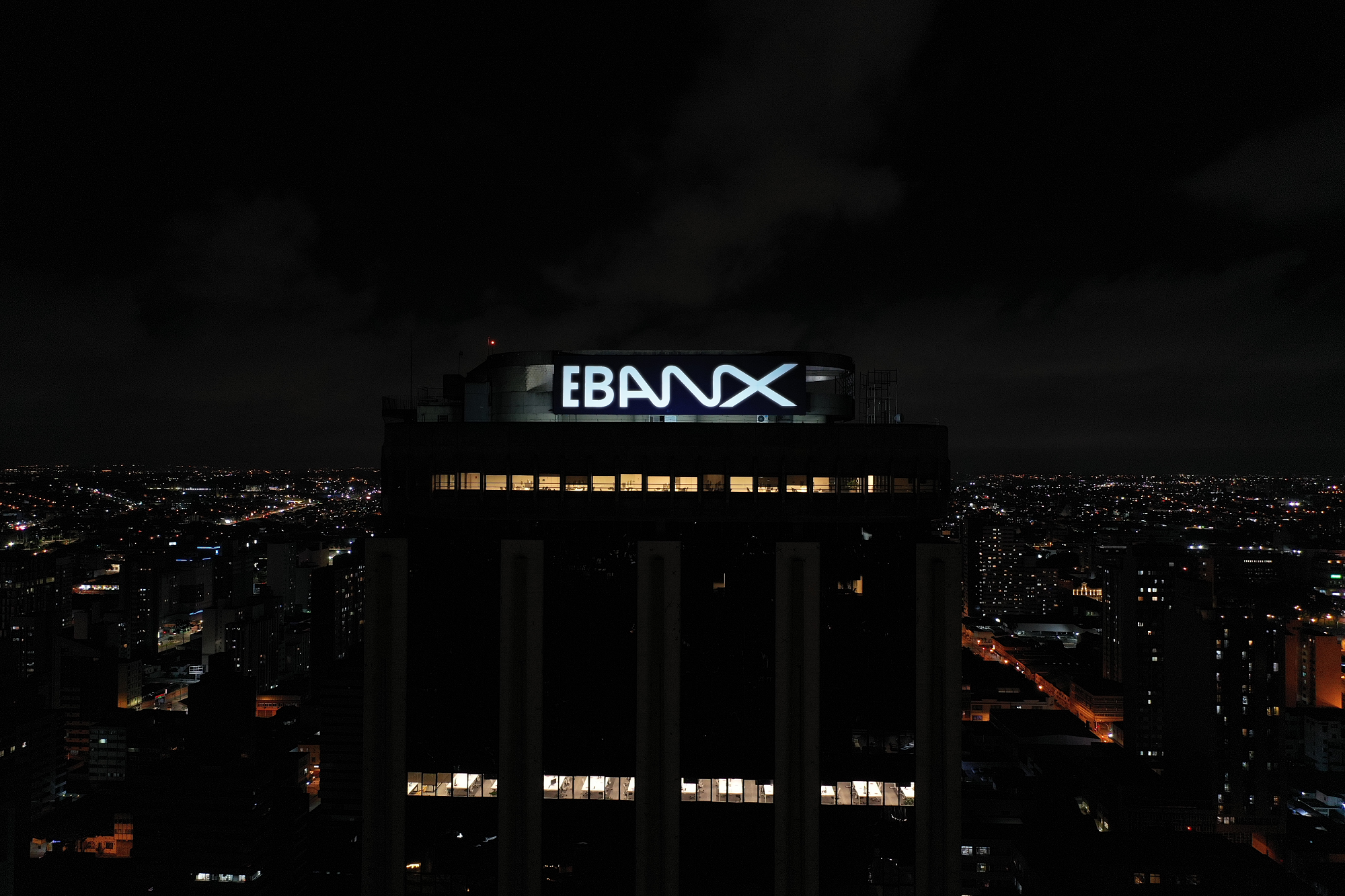
People who buy things or services online in Africa are growing by 8.2% every year—the highest in the world, and some of the biggest Latin American fintechs are taking notice.
When dLocal, a fintech from Uruguay announced its expansion to Ghana, Kenya, Cameroun and Senegal in 2020, Adebiyi Aromolaran, Head of Expansion described Africa as “a tremendous untapped e-commerce opportunity,” with “huge potential for growth with an under 40% penetration rate.” When Brazil’s EBANX announced its African entry last September, CEO and co-founder, João Del Valle pointed out that the decision was supported by the fact that “Africa’s fast-growing digital economy is only in its early days, and it’s projected to grow up and to the right for the next few decades.”
Optimism for growth prospects in digital payments is not the only thing these two Latin American fintech giants share. dLocal’s plan to empower global merchants to reach billions of customers and accept payments locally sounds awfully like EBANX’s plan to “attract global enterprise businesses to sell into Africa via EBANX payment rails & leverage its large emerging markets (Latam + Asia) footprint.”
The bet is that Africa, where shopping behaviour is turning digital, is an untapped market for global merchants. But why is this compelling enough to warrant the aggressive growth plan where EBANX for example, plans to add 11 African markets to its list in just two years—it is already in South Africa, Kenya and Nigeria?
Opening pockets of opportunity for global merchants
EBANX’s approach hinges on a promise to help the global merchants they already serve find more revenue in Africa. A Rwandan traveller in Kenya for example, cannot pay for Airbnb with MTN’s MoMo or Safaricom’s MPesa, despite these being the most popular digital payment channels.
Another example. Ad revenue generated by YouTube Music’s premium offering reached $15 billion in 2019. By November last year, 80 million people subscribed to the premium YouTube service, but it is unavailable in places like Kenya, for example. It is global merchant opportunities like this that EBANX and dLocal want to conquer by offering more local payment options.
If African customers have access to global products they are currently locked out of because global merchants do not accept the channels people are accustomed to paying, which translates to more revenue without the headache of setting up the infrastructure. “EBANX is unique in this way because we were able to attract merchants from a very wide range of verticals. Some of them are listed on our website and these are merchants who traditionally were not keen to explore emerging markets because of the complexity of setting up the infrastructure,” said Wiza Jalakasi, director of Africa Market Development at EBANX. According to EBANX’s global payments executive, Paula Belliza, “Africa became our new priority.”
This lack of access for Africans who want to purchase services or goods from global firms is part of why the virtual or gift card business is a growing vertical. The volumes that are processed by virtual card solutions, for example, might give insight into how much demand for services or products that some global businesses are not capitalising on. But this space is already coming under pressure from economic reforms, and if dLocal and EBANX manage to take off, it may only intensify that pressure.
Portable (to an extent) experience
Not too long ago, the biggest digital payment markets in Africa and Latin America shared many of the same characteristics. Low digital penetration, low levels of financial services access and the undisputed leadership of cash. Latin America has had more success overall in increasing digital payments as a share of payments volume, but it is also recent enough that some of the lessons may still apply in Africa.
African fintech professionals have had time to gain experience since the early 2000s when banks began to use more technology. This was further buttressed as early fintechs built out mobile wallets, supported bank ATMs and fought for mobile PoS systems to become as accepted as they are today. The attention (and funding) of the last six years supercharged the depth and the experience of fintech talent as companies grew faster and expanded across the continent. So it makes sense to exploit the combination of experience from teams that have built a global business from Latin America and the experience of local fintech talent.
This potent mix is a no-brainer. Take Wiza Jalakasi for example, a Malawian software engineer-turned-business development specialist. Until recently, Wiza was Vice President of ChipperCash’s global merchant team. He has now joined EBANX and will be leading its bold 11-market growth strategy in Africa. “I felt that they had all of the different pieces of the puzzle and a very good idea of how to arrange them except for like the market-specific gaps… with my experience, I was [filling] in those markets specific caps and it was very natural,” Jalakasi explained.
The other part of the portable experience driving these Africa-ward expansions is that these firms often have relationships with global merchants that they can leverage to get a foothold. Expansions in fintech are often customer-driven, Olugbenga Agoobla, CEO of Flutterwave told TechCabal recently. “If a customer is going somewhere, sometimes you have to be there,” Agboola said, explaining that his firm’s relationship with Uber was part of the decision to expand into Egypt where it now helps the San Francisco-based ride-hailing company collect digital payments.
EBANX and dLocal are not the only cross-continental expansions between Latin America and Africa. Migo and Paga, both Nigerian fintechs, expanded into Brazil and Mexico respectively. “We think the lessons from Nigeria are transferable,” Tayo Oviosu, Paga CEO, said when his company announced it was going to Mexico. If Paga can go to Mexico, and Migo to Brazil why can’t EBANX or dLocal come to Nigeria? No one says it this way, but the logic—though infantile and certainly not how any reasonable business thinks—is not terribly off.
Payments still has a long way to go
In 2022 McKinsey predicted that fintech revenues could grow up to 800% (in some markets) in a decade—if the penetration of fintech reached that of incumbent traditional players. The report also highlights 11 countries McKinsey consultants believe will drive this growth.
Crucially, several of these countries are the very same ones that have performed poorly in GDP growth terms data from a June 2023 report by McKinsey. One way of looking at it, is that GDP growth does not necessarily correlate with how fintechs perform. This makes sense because some of the fastest GDP-growing countries are also some of the most unstable politically. Think Burkina Faso, Mali, or Ethiopia which is only recovering from devastating internal conflict.
The 13 fastest growing economies in Africa represent just over a fifth (21.1%) of the continent’s nominal GDP. Many of them are conflict ridden or politically unstable.
In many countries in Africa, regular financial services firms hardly have meaningful penetration as the informal (and cash) economy has retained dominance. The inference from McKinsey’s reporting is that, if fintechs can serve more people better and faster than incumbent traditional financial institutions can change their form, fintechs will have a tremendous opportunity on their hands. McKinsey consultants write that payments and wallets will lead in this growth.
Jalakasi, EBANX’s Africa expansion leader emphasizes the partnership-led model they are trying to build, but building a payment product global merchants or not, will inevitably run smack into the fierce competition in the small but growing payments space in Africa.
I asked Flutterwave’s CEO, Olugbenga Agboola, how they were protecting their flanks from the competition. “You can’t discount home advantage,” he replied with a wry smile, “We are the ones on the ground. I can’t compete in Latin America the way they can compete, and they can’t compete the way I can compete in Africa.”




